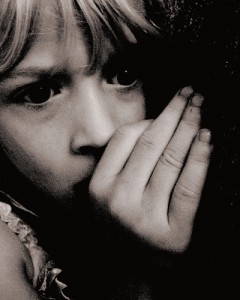 Some rights reserved by Pink Sherbet Photography
Some rights reserved by Pink Sherbet Photography
Parents today feel enormous pressure to protect and shield their children from a world that somehow feels much more dangerous than it did a generation ago. Yet research shows that these fears are largely misplaced. After years of working with severely emotionally disturbed children, the one piece of advice I would give to every parent is to focus less on sheltering your children from adversity and more on helping them create positive meaning out of the adversity in their lives.
While it might be possible to delay your child’s exposure to the dangers of the world, it is absolutely impossible to protect them completely. Eventually we are all confronted with the uglier side of life. However, it is possible to arm children with the tools they’ll need to negotiate difficulties and come away from them feeling stronger and more capable rather than traumatized.
Have you ever wondered why some people develop posttraumatic stress and others don’t? I worked with a person who had lived through a failed mugging attempt and been so traumatized that he could not go to work for 6 months. The mugger stopped him and demanded his wallet but before he handed it over, a police car happened to drive by and the mugger ran off. I have also known Tibetan monks who were tortured for years and held nothing but compassion for their torturers. It is clear that the severity of the objective event is not what determines whether we are scarred by it.
What the research says, and what I have experienced in my work is that the most important factor in meditating distressing experiences is how we make sense out of them. For my client who was nearly mugged, that experience meant that the world is a fundamentally unsafe place and that he is powerless to protect himself. For the monk, he said that great compassion can only be born out of great suffering, and he believes his experience has enabled him to better help others who have lived through deep pain. These two very different ways of creating meaning from an experience lead to entirely different effects.
As a counselor, when I work with adults I am mostly focused on helping them change meanings they created during childhood experiences. Generally, someone’s anxiety or self-criticism was formed in early experiences as they tried to make sense out of why something happened. That something could have been a one-time trauma or a chronic lack of emotional connection with a parent. What matters is not so much what happened but how they made sense out of what happened. I have had great success in resolving long-term issues as soon as a client can create a compelling and non-destructive meaning for those formative experiences.
While it is possible for adults to resolve major psychological symptoms in this way, it is much easier when a child is helped to create better meanings from the start. Just like with adults, huge problems can come from small difficulties if the child creates a destructive meaning about himself or the world. In my work with children, I have found they can experience huge improvements once they have a good story that explains why a difficult thing happened. Yet, while this might sound simple enough, it is not always easy to do.
Starting around two, children are constantly creating meanings from their experience. Any parent who has had a child go through the “why?” phase has a lived experience of this, and if you doubt it, just ask your child why something significant in his or her life happened. If it was important to the child, I can guarantee you will get an answer.
So if we are aware that children are creating meaning from their experiences, how can we help them create more functional ones? With young children, my experience has taught me that it is best for an adult to explicitly tell the child how to make sense out of an experience. It has to be a positive meaning, so rather than just saying, “it’s not your fault” we need to say why it did happen. This process can be difficult and I think it is a good idea to get help from a counselor.
Tim Desmond, LMFT is a therapist in private practice and director of a mental health day treatment center in Oakland, CA. He offers therapy and consultation through his website www.phonecounseling.net
Leave a Reply